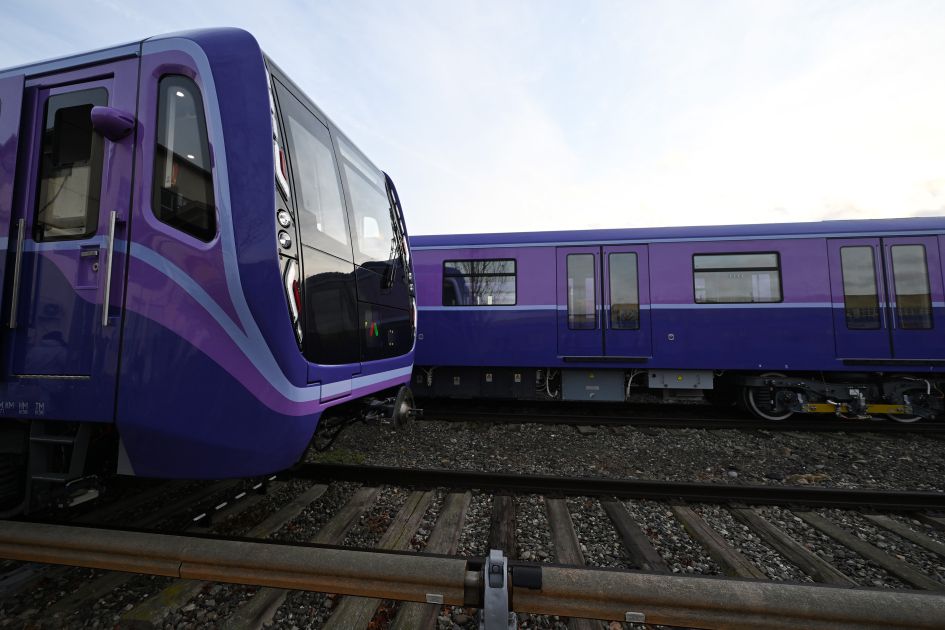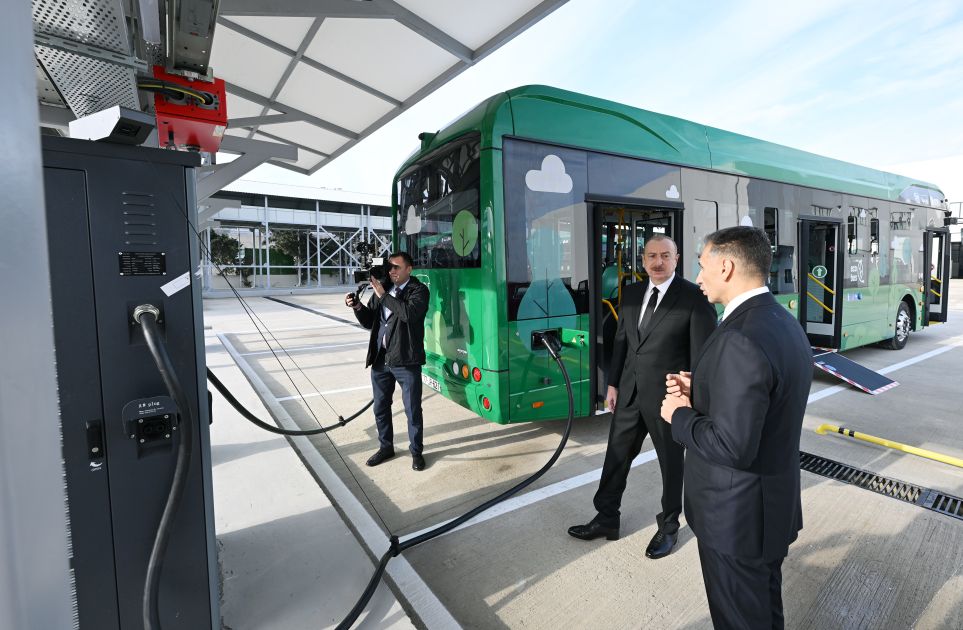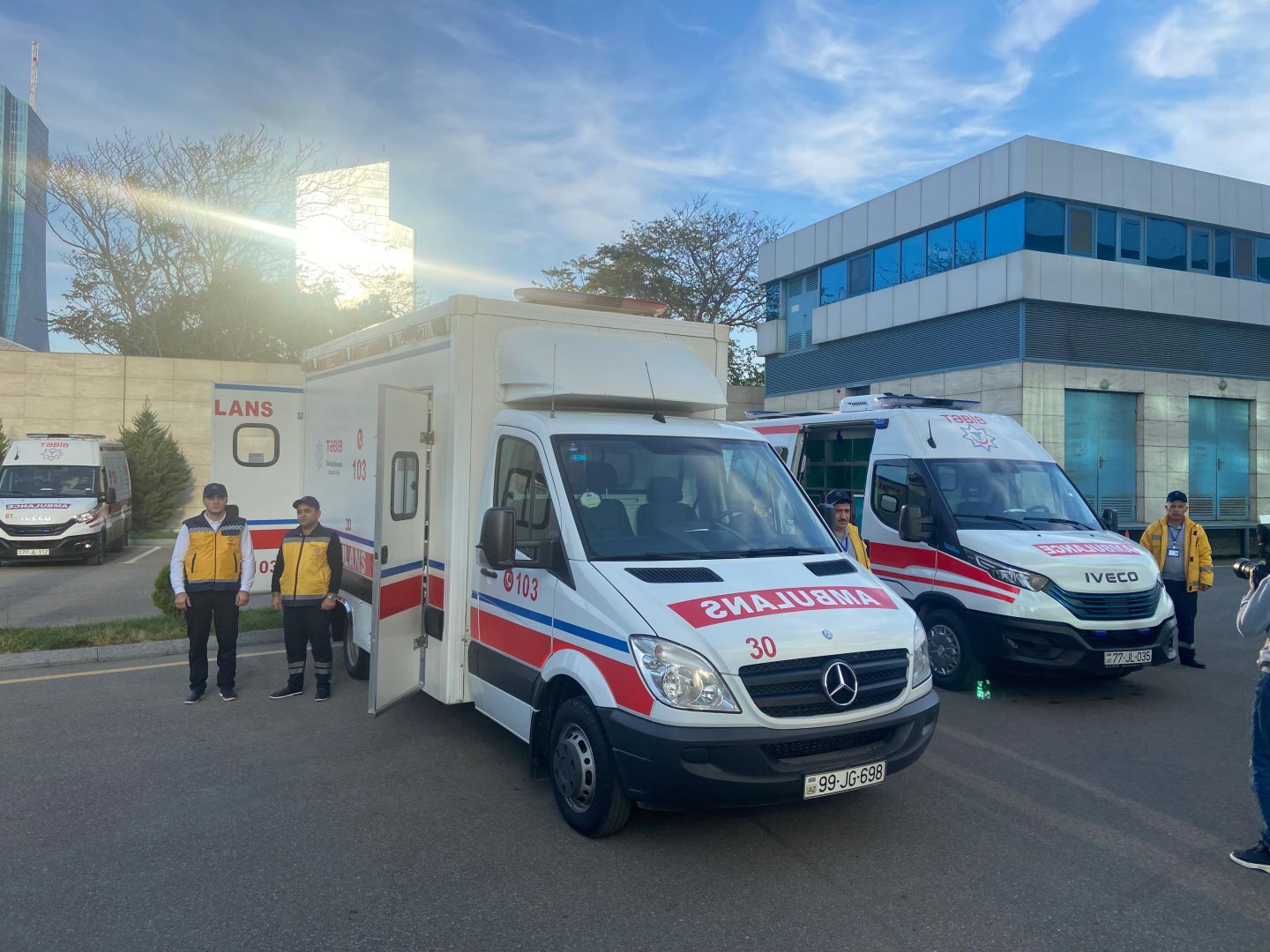|
|
TODAY.AZ / Analytics
New trains, green lanes: Azerbaijan's journey to COP29 readiness
31 October 2024 [13:50] - TODAY.AZ

In anticipation of COP29, Azerbaijan is making significant strides in bolstering its transportation infrastructure and expanding eco-friendly initiatives, with a focus on Baku's metro and electric bus systems. On October 31, President Ilham Aliyev inspected the latest infrastructure developments, underscoring the country’s commitment to sustainability and modernization.
One of the key upgrades involves the introduction of fourth-generation metro trains, designed and assembled by Baku Metro CJSC in collaboration with Global Transport Solutions LLC. Under this contract, a total of 65 advanced carriages are expected to be delivered to Baku between 2024 and 2026, ensuring high-capacity, technologically advanced transit options for residents and visitors. The new trains can accommodate over 300 passengers per carriage, with a door width expanded by 12%, improving accessibility and passenger flow. This fleet expansion brings the total of new-generation carriages in the Baku Metro to 150, supporting the city’s growing transportation needs and readiness for an influx of COP29 attendees.

Alongside metro (tubes) upgrades, the head of state also reviewed the progress at the Zigh Electric Bus Depot, including the inspection of new electric buses and eco-friendly "TX5" taxis sourced from the People's Republic of China. In addition to these efforts, the newly established Zigh Electric Bus Park will correspondingly facilitate eco-friendly public transportation. Located in a 5.4-hectare area, the park houses 160 BYD-brand electric buses equipped with electric motors and features 60 high-capacity charging stations. Each bus, manufactured in 2024, has a lifespan of 15 years and can carry up to 83 passengers. The buses are complemented by 100 “Luobinsen” chargers, capable of 320 kW output, and equipped with protective features to ensure safe and reliable operation. These electric vehicles are part of a broader effort to reduce emissions and offer green mobility solutions across the capital, aligning with a vision for a sustainable future.

For additional information, the Azerbaijani government, through TABIB and the Ministry of Health has prioritized health services, coordinating emergency and inpatient facilities across multiple centers. Notably, the New Clinic and Sabunchu Medical Center’s modular hospital are equipped to handle various medical situations, with specialized units for infectious diseases, burn care, and poisoning treatment. TABIB has also trained over 400 medical personnel in life support, and nearly 350 in English, to ensure effective communication with international guests. In alignment with COP29’s sustainability goals, the venue will use hydrogenated vegetable oil (HVO), provided by SOCAR Green, as a low-carbon power source. This shift significantly reduces greenhouse gas emissions and pollutants, demonstrating Azerbaijan’s commitment to environmentally friendly practices. The use of HVO and other renewable energy sources at the Baku Stadium marks Azerbaijan’s dedication to setting an example in sustainable event hosting.

With a robust investment strategy focused on infrastructure, energy, and social facilities, the government is laying the groundwork for sustainable economic development. This modernization reflects Azerbaijan’s dedication to facilitating efficient, green transport, and an extended focus on health services and sustainability underscores Azerbaijan’s determination to deliver a secure, eco-conscious conference. As it prepares to host the global COP29 conference, where these infrastructure advancements will serve both as practical resources and as symbols of the country’s environmental aspirations.
URL: http://www.today.az/news/analytics/254528.html
 Print version
Print version
Connect with us. Get latest news and updates.
See Also
- 07 November 2024 [20:45]
From press to politics or sympathy to hatred: Gallup's downbeat survey on Pashinyan's rating - 01 November 2024 [11:05]
Sustainable development is one of goals of COP29 - 31 October 2024 [13:50]
New trains, green lanes: Azerbaijan's journey to COP29 readiness - 28 October 2024 [17:10]
Lukewarm wishes from Yerevan - How sincere is Pashinyan in congratulating his Georgian counterpart? - 25 October 2024 [09:00]
Azerbaijan expands IFC partnership to enhance energy efficiency and sustainable development - 24 October 2024 [16:54]
Georgia under Western pressure - 23 October 2024 [13:28]
Azerbaijan becomes leader of Central Asia-Europe energy corridor - 23 October 2024 [08:30]
SOCAR's sustainable initiatives ahead of COP29: Paving way for carbon-neutral future - 22 October 2024 [19:57]
Islamophobia in France – Policy continuing since 20th century - 22 October 2024 [08:30]
Azerbaijan makes headway with loan projects boosting reconstruction in liberated areas
Most Popular
 Yerevan fails to recognize the importance of listening to Azerbaijan
Yerevan fails to recognize the importance of listening to Azerbaijan
 Dashnaks Influencing the European Parliament and Threatening EU Leadership
Dashnaks Influencing the European Parliament and Threatening EU Leadership
 Armenia sends resumed package of peace proposals to Azerbaijan
Armenia sends resumed package of peace proposals to Azerbaijan
 Europe slammed its doors on Armenia
Europe slammed its doors on Armenia
 Donald Trump's victory, Macron's hypocrisy and President Ilham Aliyev's indisputable arguments
Donald Trump's victory, Macron's hypocrisy and President Ilham Aliyev's indisputable arguments
 “Chinghiz Aitmatov” Order bestowed upon President Ilham Aliyev in Bishkek [PHOTOS]
“Chinghiz Aitmatov” Order bestowed upon President Ilham Aliyev in Bishkek [PHOTOS]
 Azerbaijani carpet expert awarded in South Korea
Azerbaijani carpet expert awarded in South Korea
